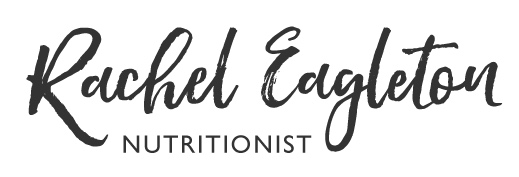Pregnancy Nutrition
/Are you thinking about getting pregnant? Have you heard about the First Thousand Days? This is the time from pre-conception until your baby turns two and is when most genetic programming occurs. The eggs and sperm contain the genetic material for your baby, and the health of these can be greatly impacted by diet. So it makes sense to pay attention to you and your partner’s diet during the three months prior to conception.
Egg and Sperm Health
Nutrition of the parents can greatly affect the health of their eggs and sperm - It is important that both the mother and the father have a balanced diet to optimise egg and sperm health
Nutrition during the first thousand days doesn’t only benefit the baby, but also the mother. Eating well during this period is important to assist with managing emotions, dealing with morning sickness, fatigue and other symptoms you may be experiencing.
If you’re struggling to become pregnant, it’s important to know that you’re not alone. One in 6 Australian couples experience infertility (which is the inability to become pregnant after a year of unprotected sex). Infertility can be caused by physical or medical conditions such as damage to the fallopian tubes or early menopause, however, nutrition, lifestyle habits and weight play a critical role. PCOS and Insulin Resistance can make it more difficult to conceive.
The Mediterranean Diet and Fertility
Following a Mediterranean Diet may have a positive influence on fertility for men and women.
One study found that women who more closely followed a Mediterranean-style diet had two-thirds greater chance of getting pregnant, than women whose diet was least like a Mediterranean diet. The benefit of a Mediterranean-style diet for fertility is believed to be its high antioxidant load combined with its anti-inflammatory effects.
The Mediterranean Diet may also be beneficial for reducing excess body weight and the risk of gestational diabetes during pregnancy.
The Mediterranean Diet is based around the traditional cuisines of the countries bordering the Mediterranean Sea. It is predominantly based around high intake of vegetables, fruits, whole grains, legumes, fish, nuts, seeds and olive oil. Dairy, poultry, eggs and seafood are consumed moderately, and red meat is eaten occasionally. The diet tends to be higher in fat than a typical ‘healthy’ Western diet, although the focus is on eating healthy fats such as extra virgin olive oil, fish, nuts and seeds.
How to follow the Mediterranean Diet
Eat 7 to 10 serves of fruit and vegetables per day
Choose whole grains
Add more healthy fats (use extra virgin olive oil to substitute for less healthy alternatives)
Eat fish or seafood at least twice a week
Reduce red meat intake (no more than 3 times per week)
Eat dairy occasionally (twice per day)
Add herbs and spices for extra flavour
Other important dietary considerations
Ensure adequate folate
Folate is a type of B vitamin which helps to prevent neural tube defects. Neural tube defects are birth defects of the brain or spinal cord which occur during the first few weeks of foetal development. Adequate folate intake is essential for the prevention of neural tube defects, so it is recommended that women trying to conceive take a daily pre-pregnancy multivitamin and eat plenty of fresh fruit and vegetables. Pregnant women need 600µg folate per day, so if you are planning on getting pregnant or are in the early stages of pregnancy, it’s best to take a daily folic acid supplement, as well as eat high-folate foods. Aim for a minimum of 400µg of folate per day, for at least one month before and three months after falling pregnant if you can.
Check whether you require additional iodine
Iodine is a micronutrient that is found naturally in the sea and in some soils. Foods high in iodine include fish, prawns and seafood, as well as iodised salt and packaged bread. As iodine is used in the manufacturing of new genetic materials, it’s important to have an adequate intake when you’re attempting to conceive. The National Health and Medical Research Council recommends you should take an iodine supplement of 150 micrograms a day.
Consume plenty of omega 3 fatty acids
The best source of omega 3 fats is fish. Omega 3 fats are great for reducing inflammation and improving the health of your eggs. Try to eat fish at least three times per week in the months leading up to your pregnancy but make sure you avoid fish high in mercury. Salmon, sardines and canned tuna in oil are all great choices.
Avoid alcohol
The Australian Alcohol Guidelines recommend that women who are pregnant or trying to conceive should avoid alcohol as it may affect the embryo.
Moderate your caffeine intake
Although the research about caffeine and infertility is divided, if you’re trying to conceive, it is best to moderate your caffeine intake to less than 300mg per day (2 cups of coffee). There’s no need to cut it out altogether, although once you become pregnant, you may not feel like it anymore.
If you’re planning to conceive, pregnant or breastfeeding and want to get on top of your nutrition, let me help you. I’m offering a free 15 minute call to work out a nutrition action plan to get you feeling your best. There are no commitments just a friendly chat so we can work out if I’m the right person to help you reach your health goals.
Rachel is a university qualified Clinical Nutritionist based in Balmain. She is also the busy working mum of two teenagers, so is practical and realistic with her advice . Rachel offers private consultations to improve your family's health and well-being. You can find her on Facebook and Instagram for more healthy tips and tricks.















